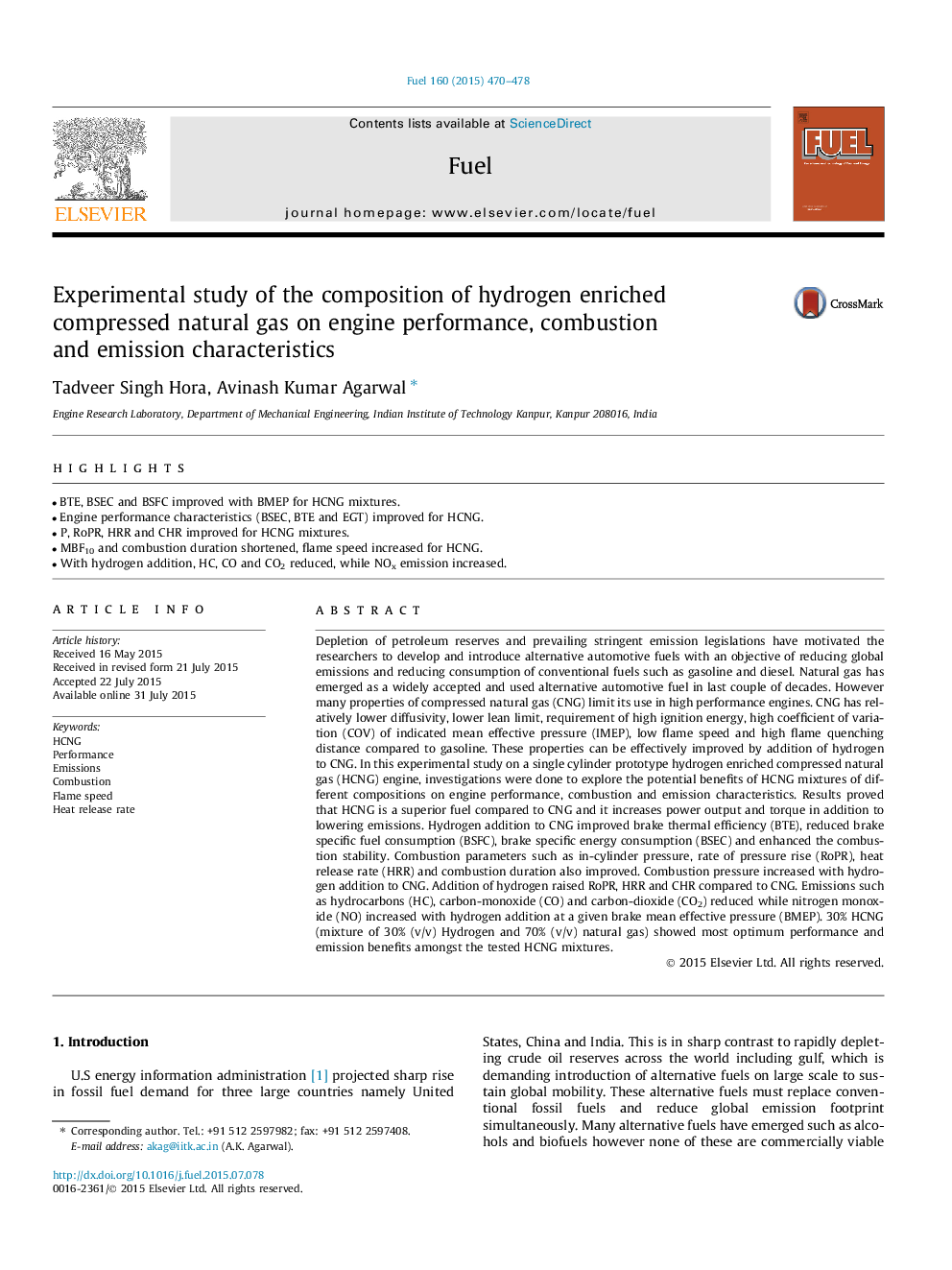| کد مقاله | کد نشریه | سال انتشار | مقاله انگلیسی | نسخه تمام متن |
|---|---|---|---|---|
| 205569 | 461112 | 2015 | 9 صفحه PDF | دانلود رایگان |
• BTE, BSEC and BSFC improved with BMEP for HCNG mixtures.
• Engine performance characteristics (BSEC, BTE and EGT) improved for HCNG.
• P, RoPR, HRR and CHR improved for HCNG mixtures.
• MBF10 and combustion duration shortened, flame speed increased for HCNG.
• With hydrogen addition, HC, CO and CO2 reduced, while NOx emission increased.
Depletion of petroleum reserves and prevailing stringent emission legislations have motivated the researchers to develop and introduce alternative automotive fuels with an objective of reducing global emissions and reducing consumption of conventional fuels such as gasoline and diesel. Natural gas has emerged as a widely accepted and used alternative automotive fuel in last couple of decades. However many properties of compressed natural gas (CNG) limit its use in high performance engines. CNG has relatively lower diffusivity, lower lean limit, requirement of high ignition energy, high coefficient of variation (COV) of indicated mean effective pressure (IMEP), low flame speed and high flame quenching distance compared to gasoline. These properties can be effectively improved by addition of hydrogen to CNG. In this experimental study on a single cylinder prototype hydrogen enriched compressed natural gas (HCNG) engine, investigations were done to explore the potential benefits of HCNG mixtures of different compositions on engine performance, combustion and emission characteristics. Results proved that HCNG is a superior fuel compared to CNG and it increases power output and torque in addition to lowering emissions. Hydrogen addition to CNG improved brake thermal efficiency (BTE), reduced brake specific fuel consumption (BSFC), brake specific energy consumption (BSEC) and enhanced the combustion stability. Combustion parameters such as in-cylinder pressure, rate of pressure rise (RoPR), heat release rate (HRR) and combustion duration also improved. Combustion pressure increased with hydrogen addition to CNG. Addition of hydrogen raised RoPR, HRR and CHR compared to CNG. Emissions such as hydrocarbons (HC), carbon-monoxide (CO) and carbon-dioxide (CO2) reduced while nitrogen monoxide (NO) increased with hydrogen addition at a given brake mean effective pressure (BMEP). 30% HCNG (mixture of 30% (v/v) Hydrogen and 70% (v/v) natural gas) showed most optimum performance and emission benefits amongst the tested HCNG mixtures.
Journal: Fuel - Volume 160, 15 November 2015, Pages 470–478
